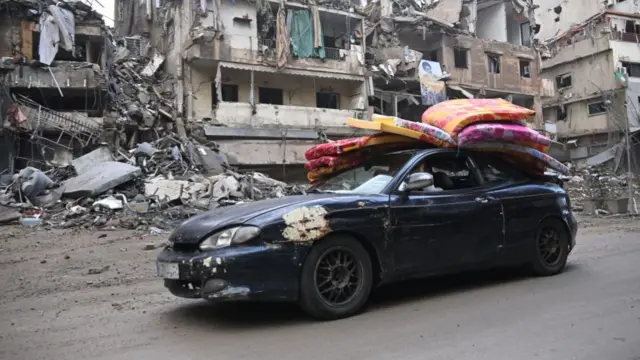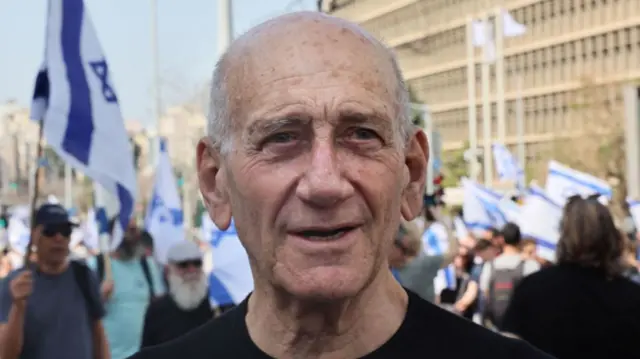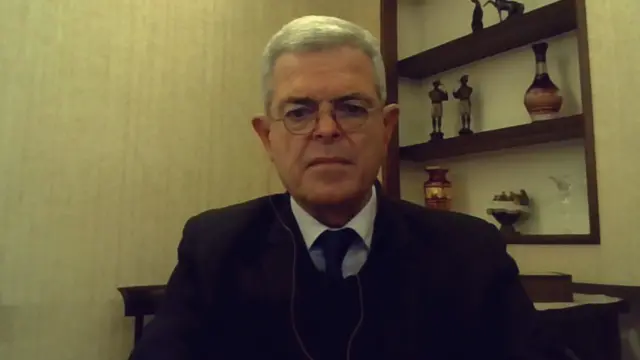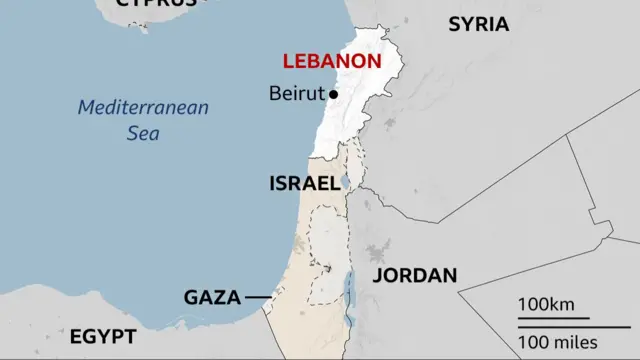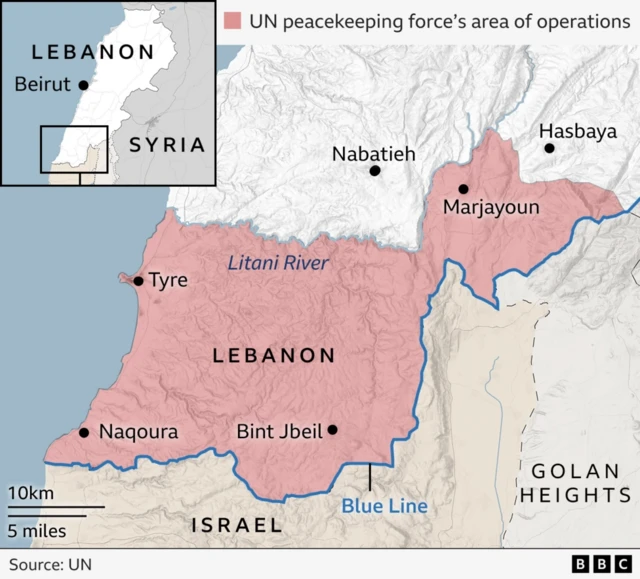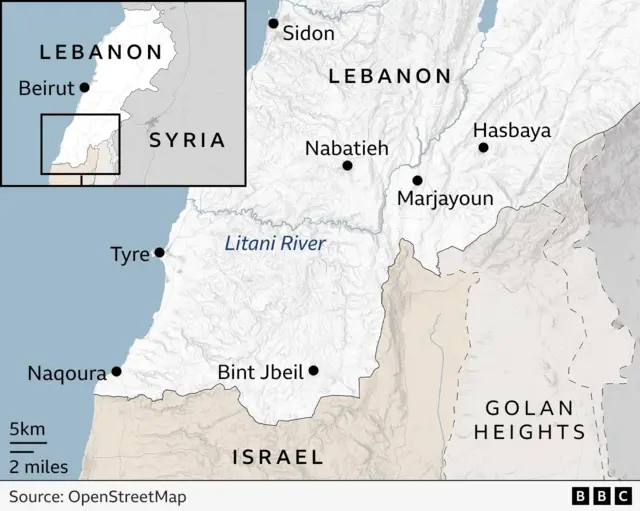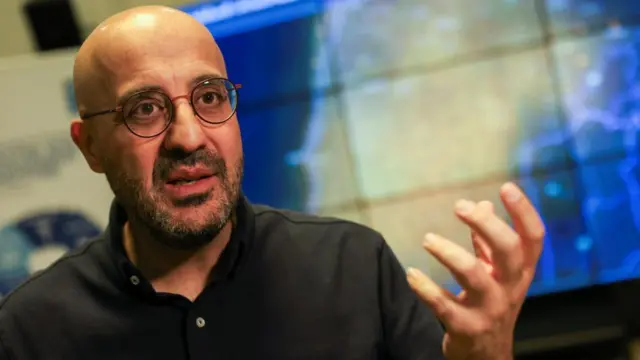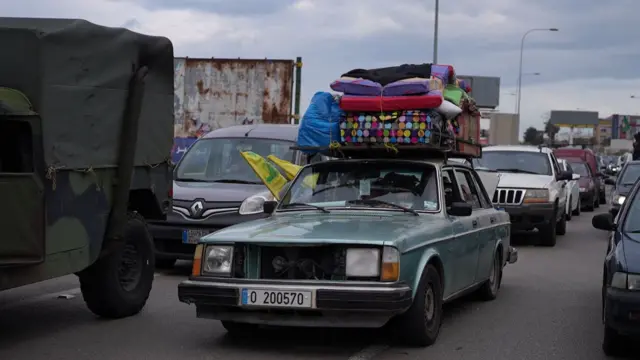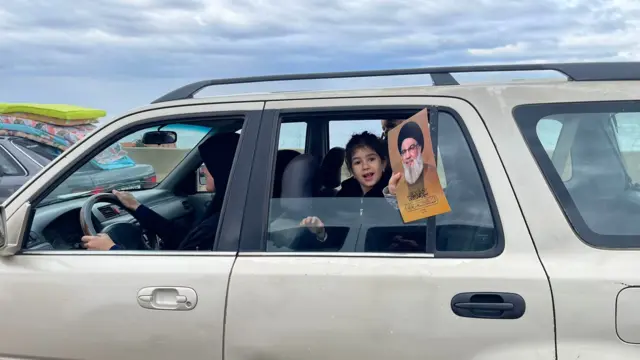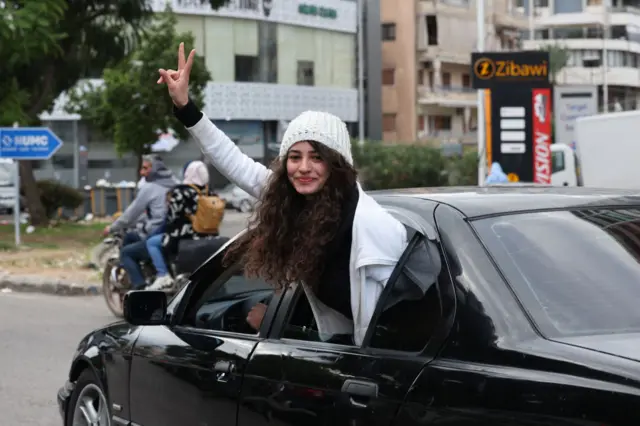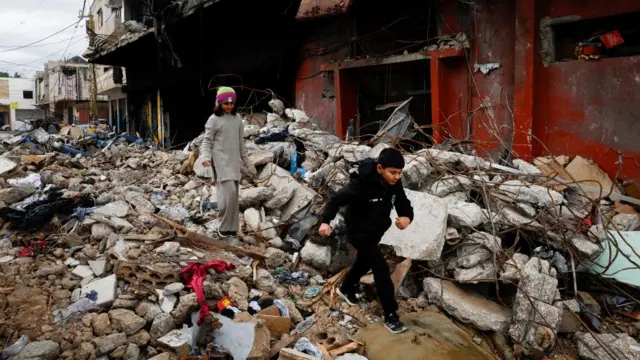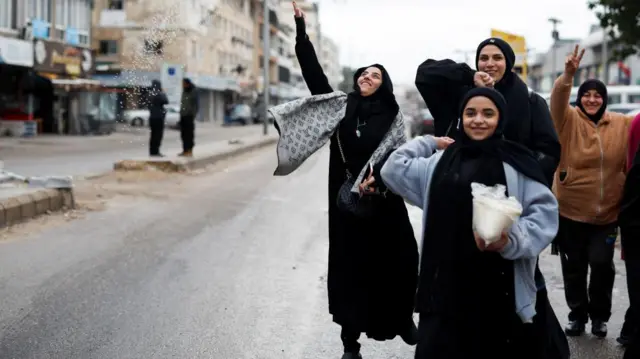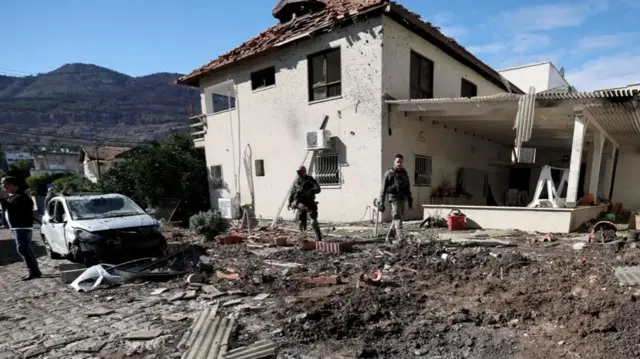Thousands make slow return to southern Lebanonpublished at 11:30 GMT 27 November 2024
 Hugo Bachega
Hugo Bachega
Middle East correspondent
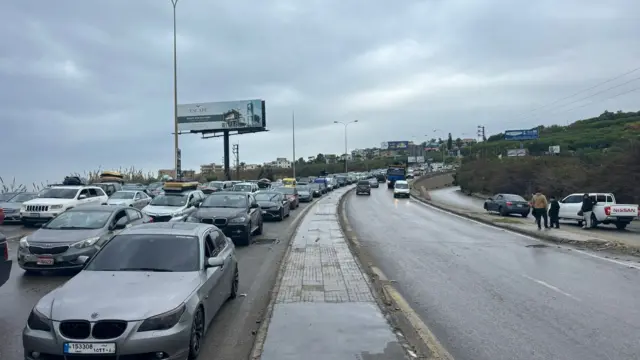
We continue our journey from Beirut to southern Lebanon. We're progressing - slowly, very slowly - and still have not reached Sidon, the first major city on the coast.
This despite being on the road for more than four hours. Usually, it is a trip that takes 20 minutes, half an hour on busier days. Cars that took different routes are now converging onto the main highway, which is making the traffic worse.
Some are driving on the opposite carriageway. Along the way, there were people distributing bottles of water, groups who had stopped by the road seemed to be celebrating as they waved Hezbollah flags.
One man told us that this, the return of thousands of residents to their home, is proof of their victory in this war - and that the killing of Hezbollah's former leader Hassan Nasrallah was the only loss they had suffered.


